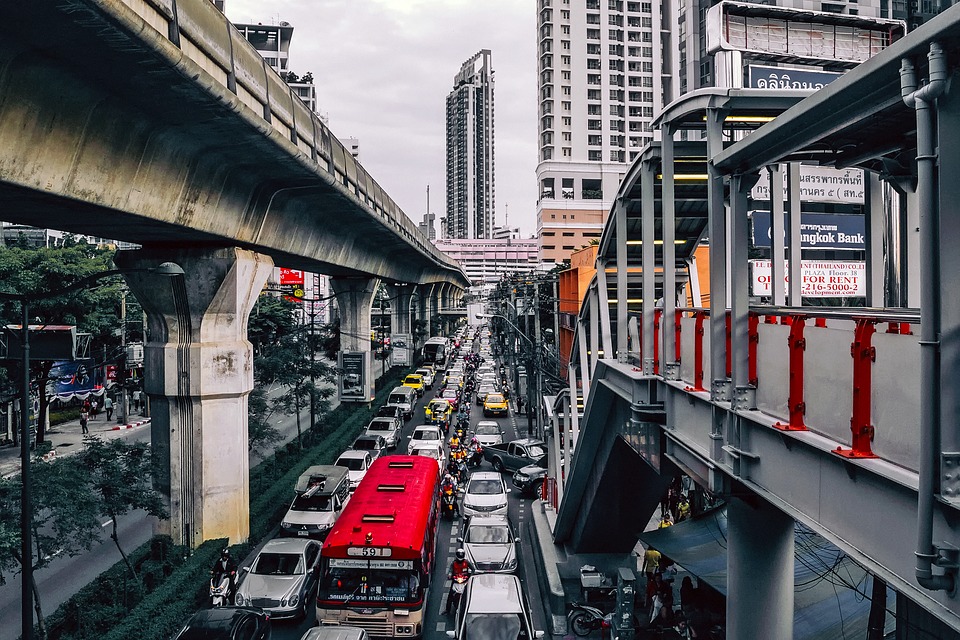
“The political relevance of the 3rd Global Ministerial Conference on Road Safety will highly depend on the level of participation of ministers from low-, middle-, and high- income countries.” —Valentina Pomatto, Inclusive Development Advocacy Officer at Humanity & Inclusion (HI, also known as Handicap International).
The final outcome of the 3rd Global Ministerial Conference on Road Safety will be the Stockholm Declaration. Building on the Moscow Declaration of 2009 and the Brasilia Declaration of 2015, the Stockholm Declaration will set out guidelines for continued international collaboration and progress on road safety. It will outline global goals for road safety and link these objectives to the 2030 Agenda for Sustainable Development.
The conference presents road safety advocates from all sectors with the opportunity to work together to chart future strategic direction for road safety, however many actors within the civil society sector fear that commitments made at the conference will remain on paper.
“A decade has passed since the First Ministerial Conference in Moscow, and five years since the second in Brasilia,” said Jeanne Picard Mahaut, President of Ibero-American Federation of Associations of Victims Against Road Violence (FICVI) in Spain. “In these meetings, important declarations and commitments were made and ratified later, but unfortunately have not been delivered by many countries.”
“We are facing a very serious global problem, for which many states have not taken responsibility. The human, economic, health, and development dimensions proposed by the objectives of the Decade of Action for Road Safety have not been properly addressed, and political commitments have not been met by governments. Since the Sustainable Development Goals were presented in 2015, little has changed in relation to road safety, and NGOs and individual activists working towards road safety remain forgotten! We must remain vigilant so the objectives of the 2030 Agenda are met.”
In order to ensure we see real and significant change, Peter Frazer, President of Safer Australian Roads and Highways (SARAH), stated, “I am an advocate for the concept ‘Think globally, act locally!” While there are substantial differences between the starting points for nation states, we must stand in solidarity with one another. With Vision Zero as our shared aspiration, we must emphasize that road safety is an investment not a cost. I therefore believe that the Declaration’s goals must be ambitious, be specific, and refer to road safety as a national investment. We must also seek a commitment that, over the coming decade, road safety funding will be increased by a minimum 10% each year and, importantly, outcome reporting must be done annually. In the absence of these requirements, we are not only setting up the global community for failure but the consequence will be half a billion avoidable deaths and serious injuries over the coming decade. That is a price that is far too high to pay!”
Valentina Pomatto pointed out the need for all actors in the road safety community to collaborate and achieve necessary change. She said, “It is well known that certain concrete interventions such as safety standards, policy enforcement, smart road design, and public awareness campaigns are effective in preventing road crashes, improving road safety, and saving lives. Once the Stockholm Declaration is adopted, all stakeholders will have to ensure that effective measures are implemented systematically and worldwide, thus translating road safety commitments into reality.”
It is change at the policy level that will accelerate progress. “We must hold our governments accountable to ensure they follow through with the commitments they make in Stockholm,” said Floor Lieshout, Executive Director of Youth for Road Safety (YOURS) in the Netherlands. “Our biggest fear is business as usual. We do not want to see another Declaration that sets ambitious goals but fails to deliver due to lack of accountability. We need to work together to hold decision makers accountable in the same way citizens around the world have done with issues like climate change. This is our opportunity to push boundaries and place political pressure on our leaders in a way that compels them to take action.”
Read the full Stockholm Declaration HERE and our shorthand summary HERE.